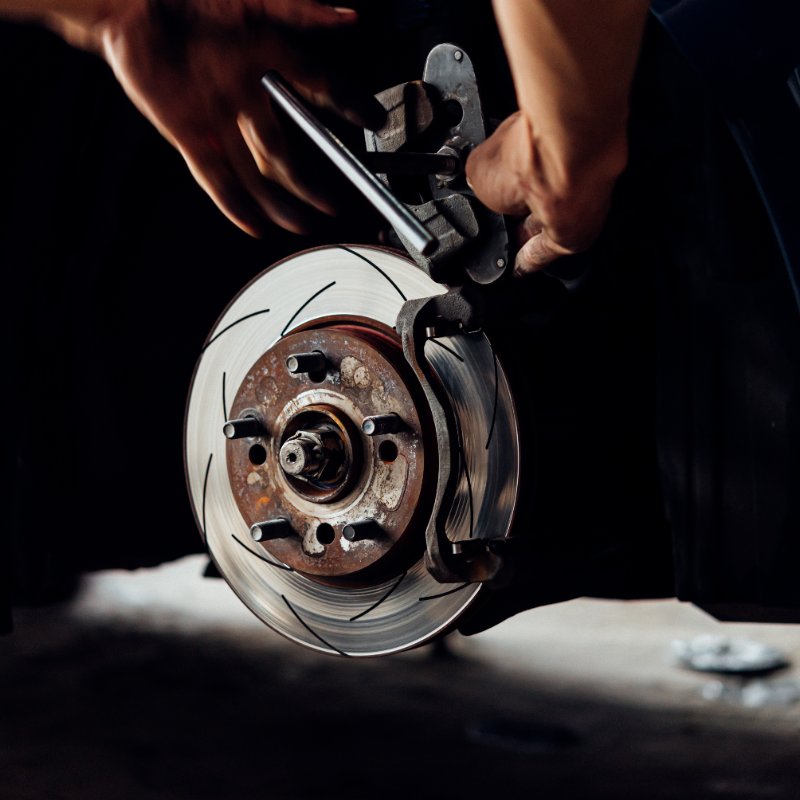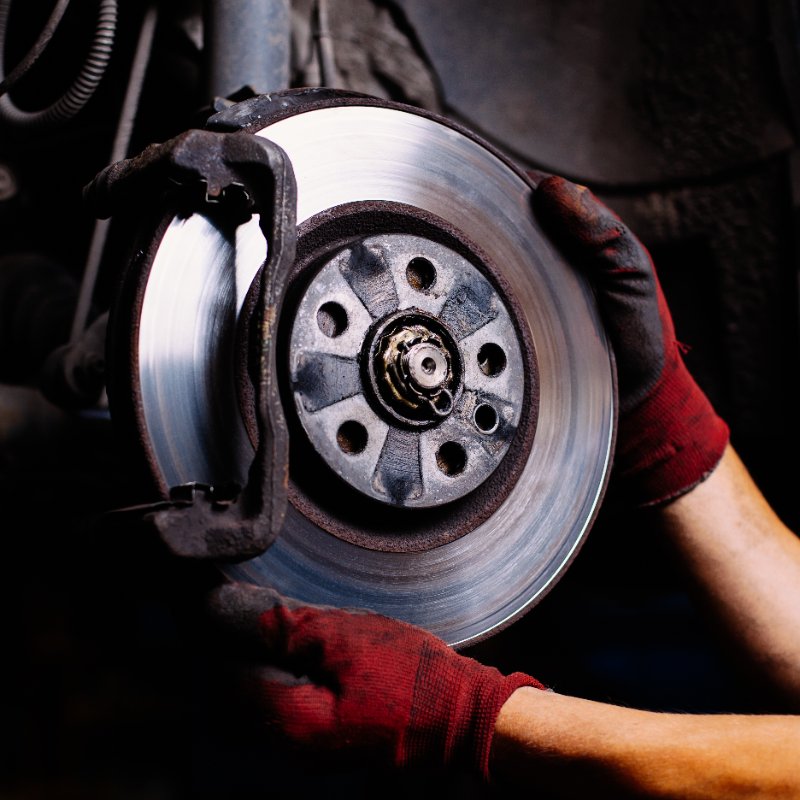
Cars have always had some type of brake system. Even Fred Flintstone’s car had brakes – his feet – but he had brakes, although he would never need anti-lock brakes service. Today, cars are equipped with anti-lock brakes. Understanding what anti-lock brakes and how anti-lock brakes work a mystery is still to most.
An anti-brake system, ABS, works with the standard brake system cars have had for decades, but they pump the regular brakes when the driver makes a sudden stop. There is a sensor that monitors the speed of the car that can detect when the wheels lock up. The sensor lets the controller know that the car is stopping.
The ABS prevents the brakes from locking up because, with a sudden braking motion, the driver can lose control of the car. An ABS is credited with preventing collisions, making anti-lock brakes service essential on the roadways of today.
Who invented anti-lock brakes?
The anti-lock brake, also known as ABS, is an anti-skid brake system for cars, motorcycles, and trucks, even on aircraft! In fact, ABS was installed and used on aircraft before it was used on daily vehicles. Prior to ABS, when we had to suddenly apply our brakes, controlling the car wasn’t possible, and the car would go into a slide or spin.
A unique form of the anti-brake system was installed in the 1900s on a few models, including the all-wheel-drive Ford Zodiac. But it was an expensive system and was proven to be unreliable, so production was ended.
The ABS used today was created by Mario Palazzetti, who sold his invention to Bosch Mobility Solutions in the 1960s. As Bosch improved on his invention, it became a more advanced and reliable system, and would soon become a standard feature we know today.
When do anti-lock brakes take effect?
A vehicle that is fitted with the anti-lock brake system activates when the brake pedal is pressed firmly and quickly, in an emergency stopping situation. It senses this motion and the wheels locking up.
What does it feel like when your brakes lock up?
In a vehicle that isn’t equipped with anti-lock brakes, as soon as you press on the brakes, you can feel the wheels locking up. You should release your pressure from the brake pedal and start pumping it until the vehicle comes to a stop. When a vehicle is equipped with anti-lock brakes, as you press on the pedal firmly and fast, you’ll feel a pulsing and vibration in the pedal.
Can anti-lock brakes be disabled?
While the idea of anti-lock brakes seems to be a brilliant idea, many question the possible dangers of the system. Cars from the factor come with a speed sensor on each wheel. That sensor alerts the computer when any of the wheels suddenly stops, the indication that the brakes have been applied by the drive.
The computer then takes over the driver’s ability to brake and release momentarily, allowing the wheel(s) to re-establish their traction. After the wheel(s) begin to turn normally, the computer reapplies the brakes. It goes through a rinse and repeat method until the vehicle stops.
Experienced drivers find this dangerous and annoying because they lose total control of their vehicles. The in-experienced driver may or may not benefit from anti-lock brakes, all depending on how attentive they are to their driving and what’s on the roadway.
Can anti-lock brakes reduce braking distance?
Yes, and this can be a bonus when you’re driving on slippery roads. Anti-lock brakes in snow can make for optimal stopping distances and keep a vehicle from going into a skid. If your car has an anti-brake system installed from the factory and you live in areas where rain and snow, having a professional anti-lock brakes service check is an essential part of owning a vehicle.
What causes anti-lock brake problems?
If your vehicle is having any of these four issues, schedule an appointment for anti-lock brake service job:
ABS Light Malfunctioning
The ABS light should turn on when the car is first started as the main computer system checks the anti-lock brake system. The light should turn off after the test is completed and the system passed. If the ABS light turns on at other times or doesn’t go out after starting the car, you should schedule an anti-lock brake service inspection. It could be an issue with the main computer or there the ABS system has a malfunction.
ABS Sensor Malfunctioning
The brakes have ABS sensors installed at the factory. Driving the vehicle can cause the sensors to get dirty with dust and road grime. Once they are covered, they can’t send information to the main computer and will malfunction, causing the ABS light to come on. You can clean the sensors yourself or have an anti-brake service tech clean the sensors and check the system.
Damaged or Faulty Wiring
If the ABS wiring gets damaged or comes loose, it triggers the ABS warning light to come on, or causes the total ABS to fail. Anytime the ABS light is illuminated under normal circumstances, have a professional anti-brake service.
ABS Controller Malfunctioning
The ABS controller is what monitors the wheels and determines how fast they are turning. The controller engages the ABS system as needed based on the rotation of the wheels. The faster the wheels rotates indicates you’re driving faster. The faster you are driving your car, the more you need to depend on the anti-lock brake system. If the controller or any other part of the ABS fails or malfunctions, it can be dangerous to you and others on the road.

In Conclusion
At any point and time, if your anti-lock brakes come on for no reason, seek professional anti-brake service immediately. It can be a matter or life or death. In states where yearly inspections are required of all vehicles, the ABS light being illuminated can be an automatic failure.


